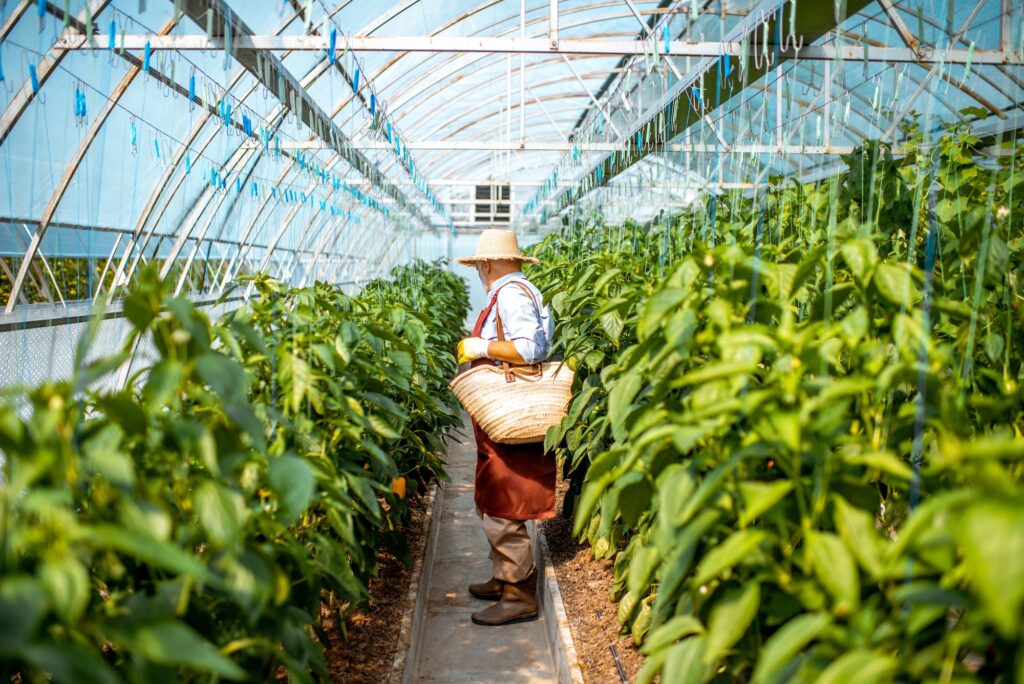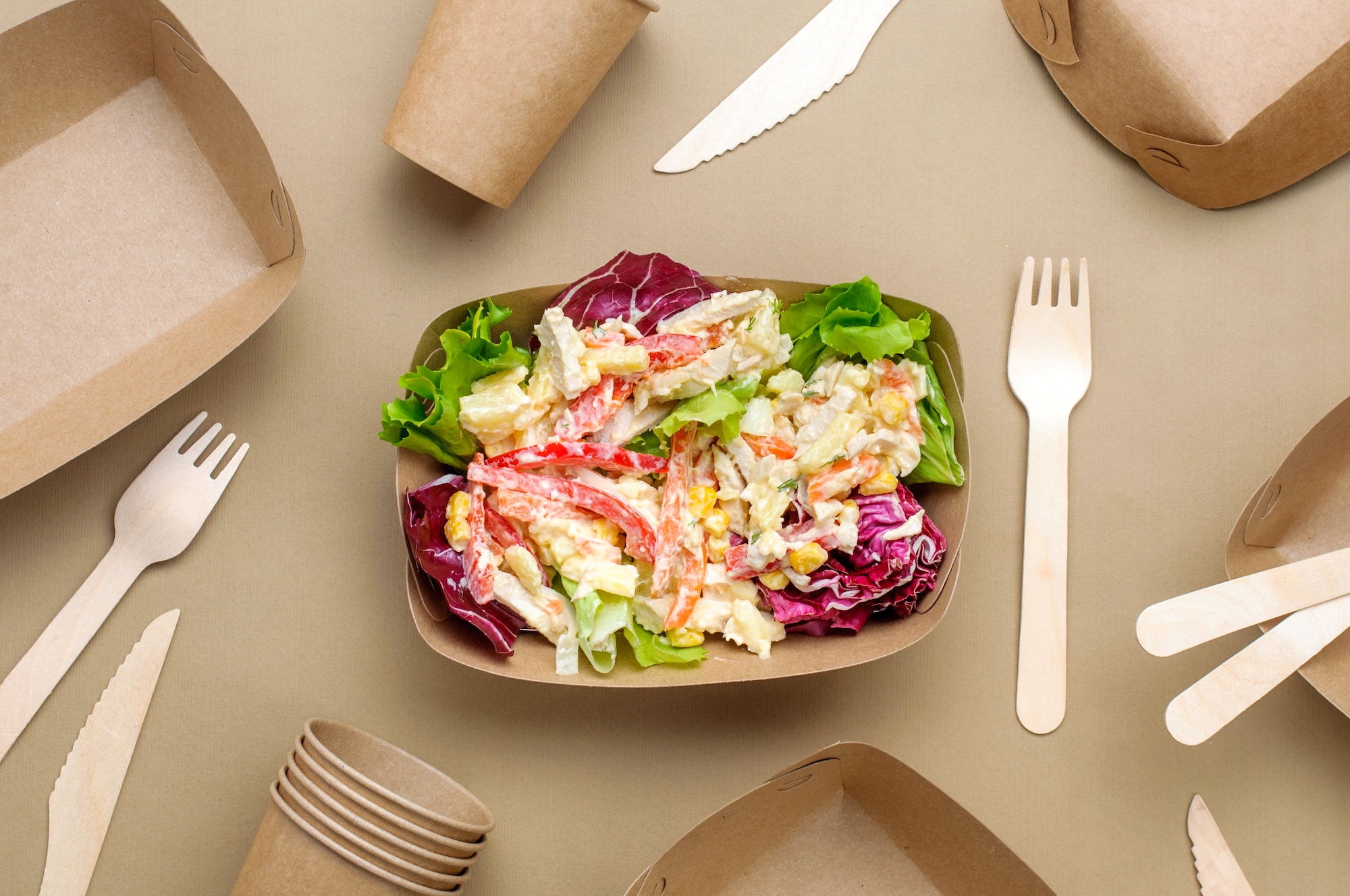How can your foodservice business distinguish itself in taste and leave a positive impact at the same time? The key lies in sustainability.
It may sound too technical or complicated, but it is more straightforward than it seems. Whether you own or manage a restaurant, a food stall, a cafeteria, or a catering business, incorporating eco-friendly practices can elevate your business and resonate positively with your customers and clients.
Here are 10 initiatives you can do to turn your food business into a more sustainable one.
Consider local sourcing

Think about a thriving neighborhood food business that supports local farmers. Purchasing locally produced food ensures freshness, strengthens community ties, and reduces carbon emissions. The transition from farm to plate drastically reduces in size when ingredients come from local sources. This decreases the need for importation and even the number of vehicles on the road, resulting in lower fuel consumption and significantly lessened carbon pollution.
Not only that, but you also provide sustainable livelihoods for Filipino farmers, fisherfolk, and manufacturers. You can actively contribute to expanding the local economy, one sustainably sourced ingredient at a time.
Focus on an eco-friendly menu
Plant-based dishes are no longer limited to vegans; they appeal to everyone who loves good food. Increase your vegetarian offerings, openly share your sustainable ingredient sources, and observe your customers appreciating the effort you invest in your menu. By diversifying your plant-based options, you champion sustainability and fulfill a vital responsibility: offering healthier choices to your customers.
Tackle food waste head-on
Portion control and smart inventory management are your best friends. And those leftovers? Repurpose them through composting or donating them for animal feed. Composting especially does wonders for the environment. It converts organic waste into nutrient-rich compost, thus lightening the load on landfills and enriching the soil. Processes like bokashi composting can be integrated into kitchen setups to produce a natural fertilizer that boosts plant growth and saves water.
Conserve water
Use water-saving faucets, fix leaks promptly, and reuse water whenever possible. Waste water from rinsing produce can still be used for maintaining facilities or watering landscapes. Effective water management isn’t just eco-friendly; it’s a business game-changer. Reducing water waste reduces utility costs, boosts profits, and lessens your environmental impact.
Save energy

Energy efficiency is crucial for every food business but restaurants in particular. Use energy-efficient bulbs, choose inverter-type appliances, and regulate your thermostat. This not only cuts down on bills but also minimizes your energy usage. It’s a win-win situation. Prioritizing energy efficiency boosts profits and showcases dedication to a sustainable future.
Design a space with sustainability in focus
Consider making your restaurant eco-friendly through reclaimed furniture and eco-conscious paints. It’s not just about being green; it’s about crafting a welcoming atmosphere for your patrons. By embracing sustainable design elements, you can create a cozy ambiance and set an example for your customers. It demonstrates that sustainability can indeed be both stylish and inviting.
Eliminate plastic use
Say goodbye to plastic straws and other single-use plastics. Embrace reusable alternatives and urge your guests to follow suit. A minor adjustment can lead to significant impacts, and your customers will recognize and value your efforts. This mindful decision aligns your brand with eco-conscious values, drawing in environmentally aware customers who appreciate your dedication to a plastic-free future.
Prioritize your workforce

Your staff plays an important role in the success of your operations. Ensure fair wages, benefits, and a positive work environment. A content team equals content customers, which form your business’s core. Investing in your staff’s well-being elevates morale and results in outstanding service. Your motivated and satisfied employees embody your business’s commitment to care and quality. It’s important to note that labor concerns are also integral to sustainability efforts.
Engage with your customers and communicate your sustainability stories
Don’t keep your sustainable practices under wraps. Share your journey and be transparent about your efforts. Rest assured, they’ll value your honesty. Being candid about your eco-friendly initiatives fosters trust and involves your customers in a collective mission. They become integral to the cause, nurturing a sense of community and pride in supporting a brand like yours that prioritizes its patrons and the planet.
Commit to sustainability
Sustainability isn’t just a trend; choosing it becomes a way of life for your foodservice business. This means building a business strategy around it. Make it your guiding principle and your culinary philosophy. More than being eco-friendly, you are creating a legacy, one meal at a time.
Sustainability isn’t complicated; it’s about simple, everyday choices that lead to a greener, more inviting future for everyone.





